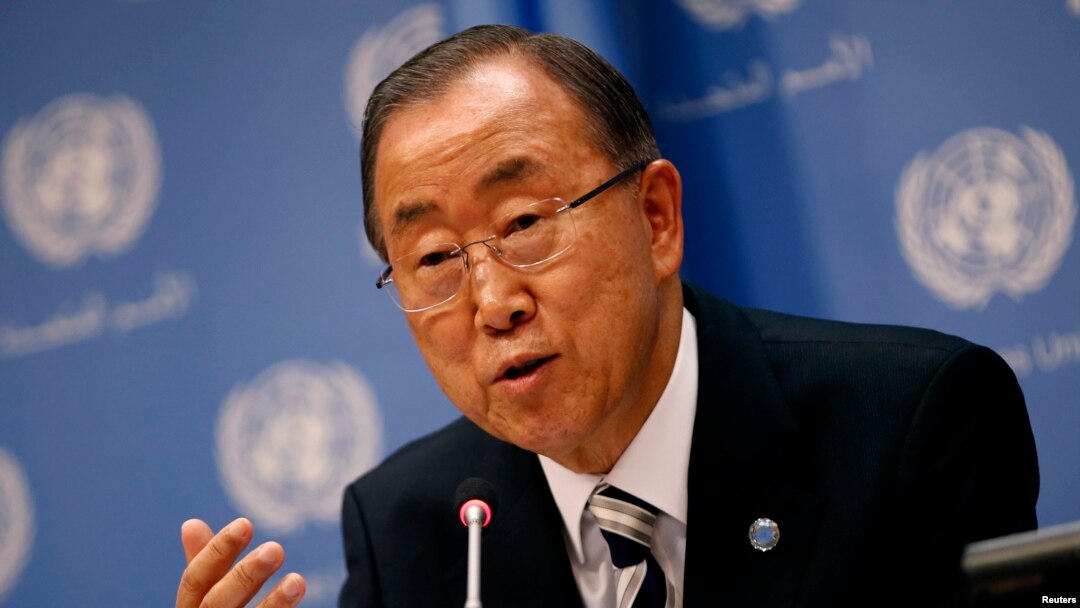U.N. Secretary-General Ban Ki-moon is urging the world to do more to prevent conflict and forced displacement around the world.
Speaking at a special session of the UNHCR annual refugee conference in Geneva, the secretary-general warned that the world body has limited resources to handle the growing number of global crises.
From climate change to the spread of deadly disease to man-made crises, Ban decried a world in a sorry state where millions endure unimaginable suffering.
“In Iraq and Syria, we see new depths of barbarity with each passing day, and devastating spill-over effects across the region," he said. "The continent of Africa is home to millions of refugees and internally displaced, including more than two million people forced to leave their homes this year alone. This includes people fleeing from war and civil strife from the Central African Republic to northern Nigeria — from the Horn of Africa to the Sahel.”
With the U.N. aid agencies currently assisting more than 50 million refugees and displaced people, Ban says the organization has never been asked to reach so many people with emergency food assistance and other life-saving support in such a short period of time.
Conflict prevention, he said, is one of his top priorities because it is more humane and far less costly than dealing with the management by crisis.
He says it is more difficult to ask the General Assembly for $5 million to head off an emergency than to request $5 billion to assist millions of victims of wars that have shattered their lives.
“I hope that we should be wise when we see some symptoms of problems, then we have to address these symptoms before it becomes a fester," he said. "At the same time, I am asking world leaders [to] listen to the voices and aspirations of their people. That means good governance, inclusive governance and rule of law.”
Describing human rights as a central guiding ethos in dealing with refugees and asylum seekers, he emphasized the importance of physically protecting people from those who would kill them and trying to ease the misery and hardship of people who, through no fault of their own, have been forced to uproot their way of life.
Ban also said he is personally committed to helping people in desperate circumstances because he once endured them himself during the Korean War, when, as a child, he and his family had to run for their lives.
The U.N. and international community, he said, proved a beacon of hope to his family, providing critical resources, such as food, books and pens.
"They helped us rebuild and gave us the power to hope again," he said, explaining that he now wants to return this generosity by encouraging refugees not to give in to despair, but to realize there is hope of turning their lives around.


